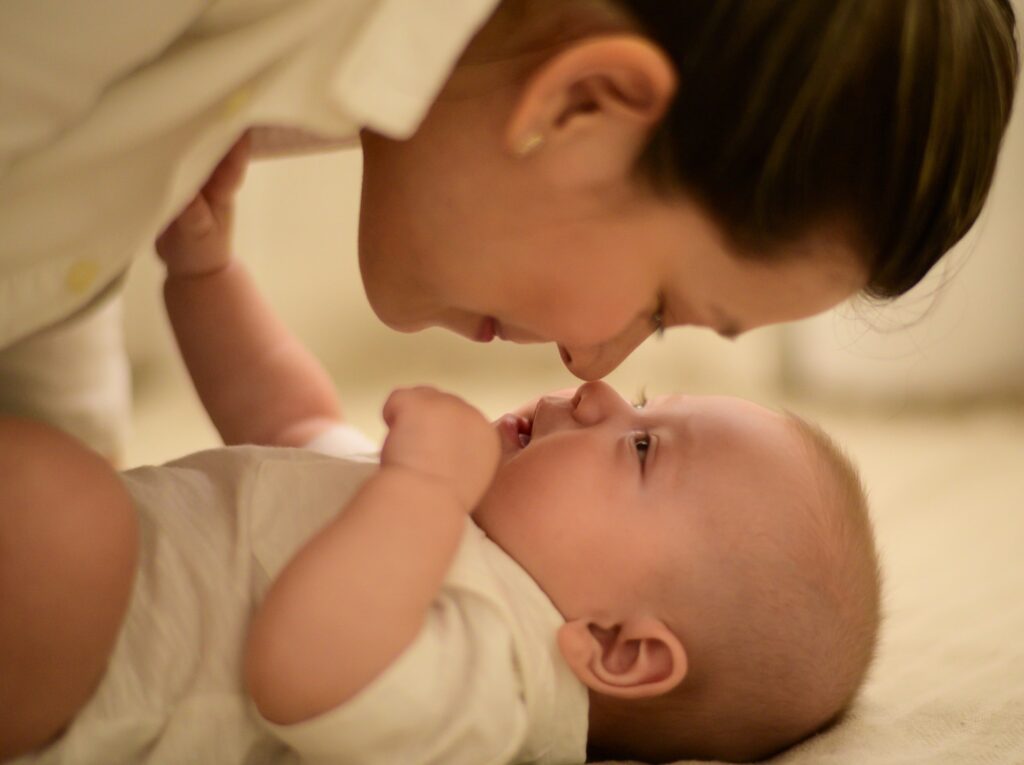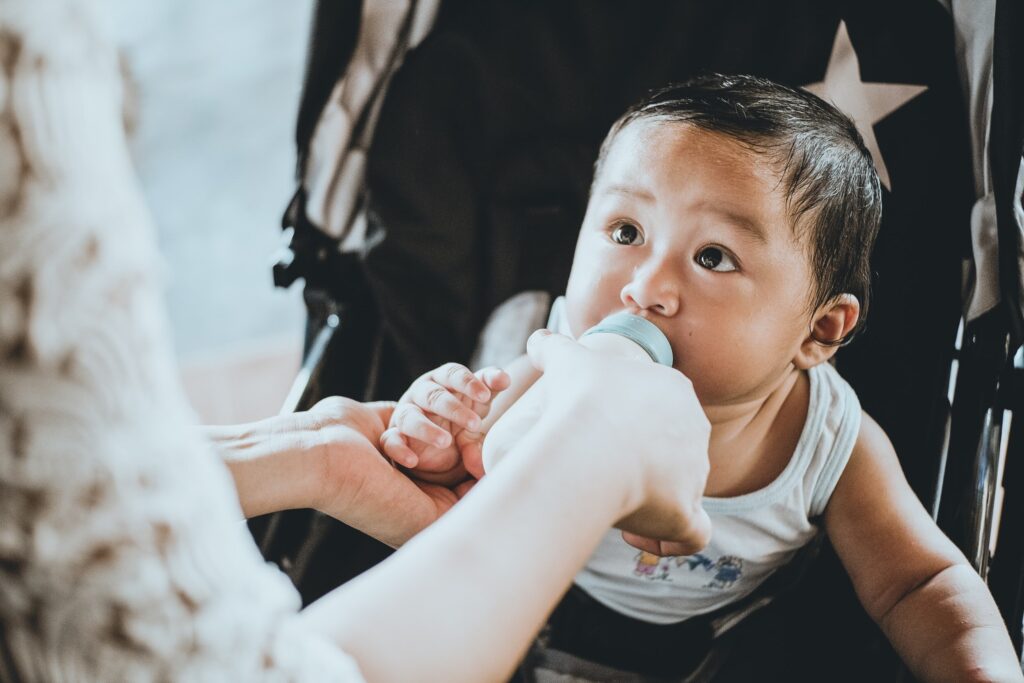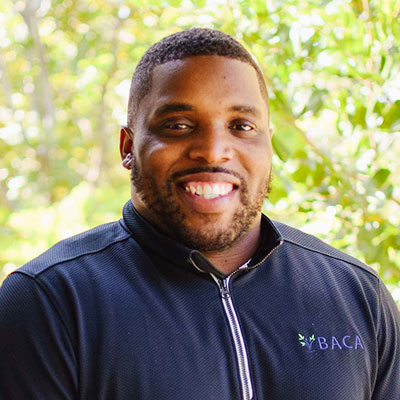Today, I threw out gallons of frozen breast milk. Cascades of frosty bags flowed into the trash with an unceremonious thud. Postpartum me, pregnant me, and even little-kid me would have balked. When I was a kid, my mom made our family boycott Nestle (KitKats! Nesquik! Rolos!) because of an infant formula scandal, and the Breast Is Best message has only intensified. From the aspirational squares of celebrity Instagrams to physician-only Facebook forums, the directive is clear: Good moms breastfeed their babies.
So of course, that was my plan A, B, and C. I put a hands-free pump on my registry and ordered nursing tanks with matching privacy ponchos. I arranged a Pinterest-worthy nursing basket and set it reverently next to the couch. As COVID panic flared, I imagined my antibodies flowing to my baby, fortifying him against the virus (nerd alert). I pictured us curled up on my bed in the middle of the night, tired, but at peace in our cozy symbiosis.
After I delivered, our nurse’s eyes welled with tears when I told her I was going to exclusively breastfeed.
“What a wonderful gift you’re giving your baby!” she said.
And they lived happily ever after was implied.
I didn’t get that story. If that wasn’t your story either, I want you to know you’re not alone.
The Myths:
FIRST. Breastfeeding should never hurt.
Lactation consultants (LCs) must get royalties for saying this. I heard it on repeat – in the hospital, in our pediatrician’s office, over Zoom consultations at home – and those words still boil my blood. There’s an unspoken second clause to that sentence: Breastfeeding shouldn’t hurt, so if it does, there’s something wrong with you. Sometimes, that’s true. Pain might mean a yeast infection, a clogged duct, or mastitis (a potentially serious infection of the milk ducts that often requires antibiotics). It could mean an improper latch or extra tissue tying down a baby’s tongue or lips. Sometimes, it’s none of those things. It just hurts.
Although I imagine most women expect childbirth itself to be painful, postpartum pain is rarely discussed in birthing classes. Recent research suggests that postpartum pain matters more than labor and delivery pain for predicting postpartum depression, and breastfeeding pain has been specifically associated with higher rates of depression at two months postpartum.
Given my personal history and the stakes (postpartum depression is associated with physical and emotional complications in both mothers and their babies), I wish someone had taken my persistent pain seriously. Every LC I talked to suggested something new, and I bought every ointment and bandage on the market, including several prescription medications. Nothing worked. Our last LC confirmed that we had a good latch, good milk transfer, and no tongue ties. As she signed off of our meeting, she offered a kind, but resigned, “sometimes mom and baby just aren’t a match.” Cue waterworks.
So, I walked away, into the cold embrace of the pump. The loss of my dream stung, but the vitriol I threw at myself was worse. I felt like a failure. A whiner. I’d run a marathon, broken bones, and pushed out a baby, and yet I still saw myself as weak for hurting. It wasn’t until I did my own research and saw just how many women struggle with breastfeeding that I let go of my cruel and unfair self-judgment.
SECOND. Breastfeeding “comes naturally.”
It’s instinct, right? If I had a dollar for every time I was told, “Relax, your body was designed to do this,” I could have bought myself… well, hundreds of hours of my life back. Even as she reassured me that my body would “figure it out,” our hospital LC handed me a bagful of syringes and a multi-page explanation of how to “triple feed.” If breastfeeding was so easy, why did it take all this machinery?
Breastfeeding is an infinitely complicated process, and research shows that most women do not breastfeed as long as they intended. Often, women cite their issues with the mechanics and/or lack of support as their reason for quitting. Despite calls to action, breastfeeding education is by no means universal. Mothers are led to expect breastfeeding to be easy, then left with shame and confusion when it doesn’t work out. If we were told that it might be difficult and offered support and validation, we could have a clearer understanding of our choices, more realistic hope, and a better shot at being at peace with the ultimate outcome.

THIRD. Breastfeeding is the best way to bond with your baby.
Even setting aside the obvious arguments (What about adopted children? Non-gestational parents? Fathers?), this myth seems ridiculous. I still bought into it. In my dark days and even darker nights, I tortured myself with questions. If I stop breastfeeding, how will my baby know I love him? What will he think when he reaches for me, and I give him a cold bottle instead of my warm body?
These fears were doubly-irrational, since I’d already switched over to near-exclusive pumping. At one point, I was spending almost five hours a day behind a closed door with my Spectra and old episodes of Survivor (don’t judge, it helped). How was this separation going to help me attach to my kid? Was the milk I was expressing so special that it superseded actual quality time together? I knew the answer, but it felt impossible to shoulder off the guilt of feeding him formula.
There are so many ways to bond with a baby, and breastfeeding does not appear to be a determining factor in parent-child closeness. Skin-to-skin means just that: physical contact with your baby. Breasts need not participate. For many mothers, breastfeeding is an efficient way to feed and bond with their children. For me, it wasn’t.
FOURTH. Breastfeeding is always the healthiest option.
Though the research isn’t perfect, I do believe that there are unique and compelling health benefits to breastmilk. But what if your breastmilk makes your baby sick?
It started around three months, first as a speck, then a streak, then a diaper full of blood and mucus. Maybe my son had an allergy to something I was eating? I cut out dairy, then soy, then a long list of other foods. Nothing helped. As his weight slipped down the percentiles, my doubts grew.
Maybe my milk was too fatty? Too sugary? I spent one night searching for a lab that would measure the level of stress hormones in my milk (note: does not exist, and also, what was I planning to do with the results? Get more stressed out?). Even as I was clamoring for what to try next, I had to ask myself: Can’t you trust your gut? Or, at the very least, your baby’s gut? How can this be healthy?
Yes, my situation was unusual and most infants will not face health risks related to breastmilk. However, health risks to mothers are far more common. Breastfeeding difficulties are not just psychologically disruptive for mothers; they can threaten their physical health, too. I remember one horrible morning, blinded with pain from mastitis and jabbing a sterilized needle into myself to dislodge a bleb, thinking: “Why do I have to hurt myself? Is this really what it means to be a mom?”
Let me be clear: I would still recommend breastfeeding to a patient or friend. I would still try it again myself. But can we please be fair and reasonable with how we talk about it, so that when problems come up, women feel okay asking for help? And, if the risks outweigh the benefits, they feel okay opting out? This is how we would approach any other decision in medicine, and women are people, not just mothers.
FIFTH. You just have to try hard enough, and it will all work out.
I tried. I tried hard. I made it through Stanford, medical school, 80 hour work weeks in residency, and I’ve never worked as hard at anything as I did at breastfeeding. I spent hours reading everything from academic articles to obscure Australian social media forums. I shelled out hundreds of dollars on products. We talked to breastfeeding specialists, lactation consultants, a pediatric allergist and gastroenterologist, as well as our very patient pediatricians. They all cringed sympathetically and told me to “keep doing what you’re doing, and let us know if it gets worse,” which was both fair and devastating. The only thing that kept me going was commiseration from close friends, one of whom likened breastfeeding to a minefield. I felt like I was sprinting laps around that minefield and getting nowhere.
The bomb finally detonated. After I lost ten pounds in a week on a draconian elimination diet, I struggled with even the basic motions of taking care of myself and my kid. The morning of the 2020 Presidential election, we did one last direct feed curled up on my bed in a wash of thin, pre-dawn light. I cried as I cuddled him, and I took a picture, somehow knowing this was the end. There was blood in his diaper that afternoon.
Despite my own suffering, it wasn’t until I really listened to my son’s cries of pain that I let myself say, “enough.” I realized that I had made my fantasy of what breastfeeding “should be” more important than the actual health and happiness of myself and my child.
In the words of a good friend in my Moms WhatsApp group (borrowed from a character in You’ve Got Mail), “Sometimes, ‘closing the store is the brave thing to do.’”

Epilogue
My kid’s stressed out intestines immediately calmed down on formula. Though the process of weaning myself off of the pump was a bonus month of salt-in-my-wound, I also began to feel better. I was no longer terrified every time I fed my baby or changed his diaper. The catastrophic thoughts that crept out of the shadows of my brain at night retreated, and I slept. Now my kid is a healthy, happy toddler. He loves to eat. Turns out, he has zero food allergies. I am exquisitely lucky.
As in so many areas in our lives, happy endings may look a little different than we expected. I still feel a stab of longing when a friend adjusts her shirt to feed her infant. It’s unfair. It hurts. At the same time, I can’t imagine feeling closer to my son than I already do.
Before you ask, yes, I considered donating my milk, and maybe I “should” have. For the last eight months, I’ve been trapped between two irrational and directly opposed beliefs: 1) I was supposed to give my child my breastmilk, so I needed to save the good stuff for later, and 2) my breast milk was toxic and could hurt another baby the same way it hurt my own. Now, it’s past its prime and going in the trash, not as a waste, but as an important reminder of the journey. In the style of Marie Kondo, it’s time to thank it and say goodbye with some sadness, but no guilt.
Thank you, breastmilk. Goodbye.


